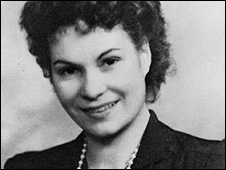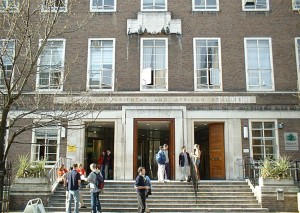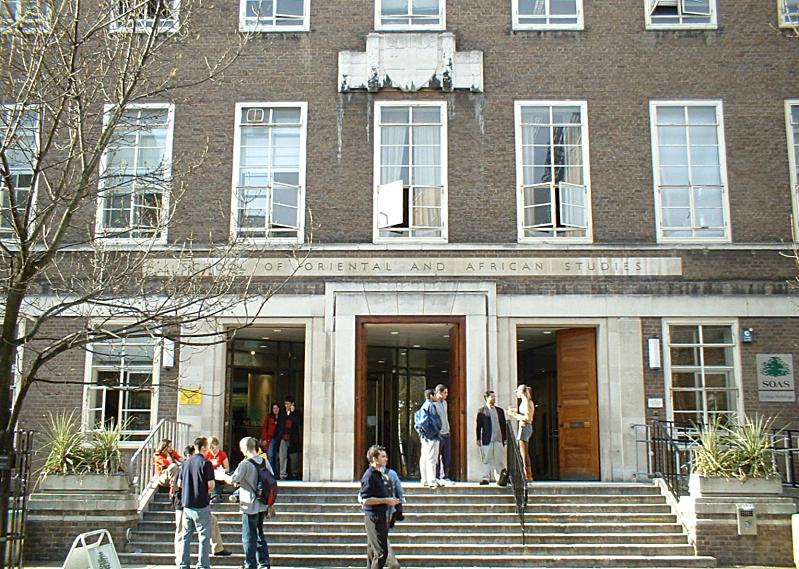It will be seen that the requirements of the Ministry over the last seven years, including six most difficult years under war conditions, have been very exacting, and far beyond those of the University in normal times
In preparation for this year’s Bloomsbury Festival (15-20 October 2013) the School of Advanced Study have been searching through the University archives to find out a little more about Senate House during its occupation as the Ministry of Information during the Second World War. In this post we continue to look at the minutes of the Senate (as in Senate House), this time looking at how various University workers continued to operate for the University but under the demands of the Ministry. This includes workers such as the Steward, catering managers, messengers, and engineers.
The Steward
The Steward took care of supervisory matters in Senate House, organizing events, meetings and much more. During the war that task became more difficult as the Steward no longer just had to cater for the needs of the University itself, but also for the Ministry of Information. As of 18 July 1940 the Ministry agreed to increase their contribution to the Steward’s salary from 50% to 75% and to refund to the University 75% of the special payment of £10 per annum that had been granted to the Steward quarterly for overtime (above the normal hours of 48 per week). It was hoped that these sums would better enable the Steward to carry out their often complex tasks.

Joan Hunter Dunn
The Catering Manageress
Miss J. Hunter Dunn was responsible for managing catering in Senate House and thus for the Ministry of Information. In view of the increased work and responsibility this entailed her basic salary was increased to £225 per annum from 1 June 1941. Amongst the additional work Miss Dunn was asked to serve on a new joint Catering Advisory Committee between the University and Ministry of Information.
Messengers
Messengers still exist in the University. They are the people who take away and deliver internal mail. During World War Two, the University treasury and Ministry of Information agreed to a flat rate for each University Messenger in the services of the Ministry at £3 8s, increased to £3 9s in July 1942. Overtime rates were aligned with those for Government Messengers at 1s 8d per hour on week days and 2s per hour on Sundays. It was believed this would cost the University an additional £70 per annum.
The Engineer
During the Ministry’s occupation of Senate House and other university buildings Mr Jordan was in much demand. Above and beyond his ordinary working hours the Ministry applied for his “part-time services” in the evenings “for work in connection with the extension of the University’s Internal Telephone System to the new School of Oriental and African Studies”. The application was put to the Joint Maintenance Committee of the Court and Senate on 19 May 1942 and it

SOAS
was decided that indeed:
“Mr Jordan should undertake the work rather than the Ministry of Works should engage an outside engineer unfamiliar with the University system.”
Mr Jordan himself seems, at this time, to have felt overworked or at least unclear about his situation. He asked for clarification and direction from the Committee. Focusing on wages the Committee decided that for the period of occupation by the Ministry the engineer’s war-time allowance of £48 per annum should be increased to £100 per annum (to be reviewed when the occupation ceased).
When the war was over and the Ministry of Information began to hand back the buildings it had occupied a report was submitted by Mr Jordan for the committee summarising the difficulties and successes of the seven years of occupation:
“It will be seen that the requirements of the Ministry over the last seven years, including six most difficult years under war conditions, have been very exacting, and far beyond those of the University in normal times. All the numerous services, of wide variety and involving ingenious improvisations, were carried on night and day without interruption, and their value to the Ministry has been immense. The arrangement made between the Government and the University under which our Staff provided and maintained the buildings gave the Ministry the benefit of highly efficient work, and has certainly resulted in a very considerable saving of public moneys.”
More about Senate House during the Second World War will be discussed, presented, and interpreted during this year’s Bloomsbury Festival. Check out our Festival Highlights post for details of events at this year’s Bloomsbury Festival.
The Bloomsbury Festival runs from October 15-20, 2013. The full schedule of events at the School of Advanced Study is available here. We are also running a series of exciting competitions in October. Follow us on @SASNews for festival news and updates.
Finding the Ministry of Communication:
Senate House, Malet Street, London


